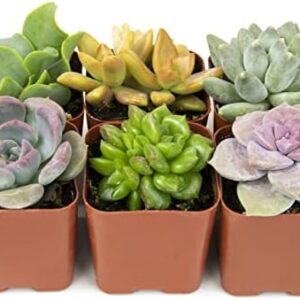Have you ever stopped to really appreciate the incredible world of plants that surrounds us every day? From the tall trees in the forest to the delicate flowers in your garden, plants play a vital role in our ecosystem and provide us with so many benefits. But did you know that there are some truly surprising and fascinating science facts about plants that you may not have heard before? Let’s delve into the world of plants and discover some of these amazing facts together.
Plants have been on this planet for millions of years, long before humans ever walked the Earth. In fact, the oldest known plant fossil is over 400 million years old! These ancient organisms have evolved over time to adapt to different environments and climates, making them incredibly resilient and diverse. From the smallest blade of grass to the largest tree, plants come in all shapes and sizes and can be found in almost every corner of the globe.
One of the most amazing things about plants is their ability to photosynthesize, a process that allows them to convert sunlight into energy. This incredible feat is what makes plants the ultimate food producers, as they are able to create their own food from simple ingredients like water, carbon dioxide, and sunlight. Through photosynthesis, plants release oxygen into the atmosphere, which is essential for all living creatures on Earth. In fact, it’s estimated that around 50% of the oxygen we breathe comes from plants!
But photosynthesis isn’t the only cool trick that plants have up their sleeves. Did you know that some plants are capable of moving on their own? Take the sensitive plant, for example, a small shrub that folds its leaves inward when touched. This unique behavior is a defense mechanism that helps the plant avoid being eaten by animals. Other plants, like the Venus flytrap, have evolved to catch and digest insects for nutrients, a carnivorous strategy that sets them apart from typical plant species.
Plants are also masters of communication, believe it or not. Through chemical signals and complex root systems, plants are able to communicate with each other and with other organisms in their environment. In a phenomenon known as allelopathy, certain plants release chemicals into the soil that can inhibit the growth of nearby plants, giving them a competitive edge in the struggle for resources. Similarly, some plants emit pheromones to attract beneficial insects for pollination or to repel harmful pests. It’s almost like plants have their own secret language that we humans are only just beginning to understand.
Another mind-blowing fact about plants is their incredible diversity of shapes, colors, and adaptations. From the vivid hues of a tropical flower to the intricate patterns of a succulent’s leaves, plants have evolved a wide range of attributes to attract pollinators, deter predators, and survive in their environments. Some plants, like the baobab tree, have adapted to store water in their trunks to survive in arid climates, while others, like the cactus, have developed special structures to minimize water loss in hot, dry conditions. The sheer variety of plant species on Earth is a testament to the ingenuity and creativity of evolution.
Plants are also essential for maintaining a healthy ecosystem and providing vital resources for humans. In addition to producing oxygen and food, plants also help regulate the climate by absorbing carbon dioxide and preventing soil erosion. Forests, in particular, are important carbon sinks that help mitigate the effects of climate change by storing carbon in their plant tissues. Without plants, our planet would be a very different place, devoid of the beauty and biodiversity that we take for granted.
So the next time you take a stroll through a park or tend to your garden, take a moment to appreciate the amazing world of plants that surrounds you. These incredible organisms are not only fascinating in their own right but also play a crucial role in sustaining life on Earth. From their ability to photosynthesize and communicate with each other to their diverse adaptations and stunning beauty, plants truly are some of nature’s most wondrous creations.
In conclusion, plants are not just pretty decorations or sources of food—they are complex, fascinating organisms that have been shaping our planet for millions of years. By learning more about plants and their incredible abilities, we can develop a greater appreciation for the natural world and the interconnectedness of all living things. So the next time you see a blooming flower or a towering tree, remember the amazing science behind these botanical wonders and the vital role they play in our environment.






